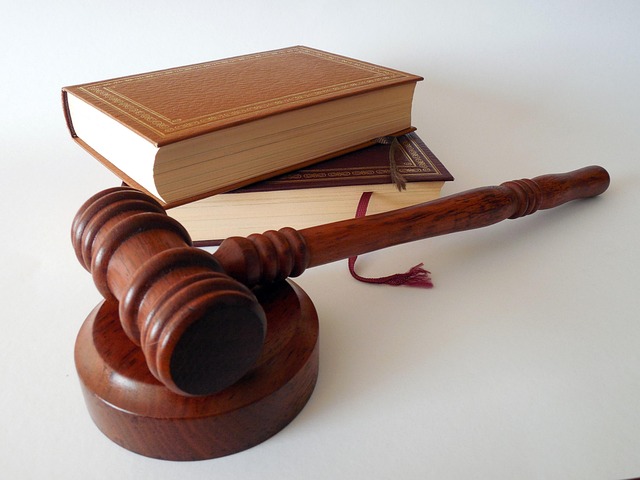When to Consult a Civil Rights Attorney for Discrimination, Police Misconduct, or Voting Rights Violations in the United States 2025
Have you faced unfair treatment due to your race, gender, or voting rights? Knowing the right moment to contact a civil rights attorney is essential to defend your rights and pursue justice. This article outlines the critical situations in which legal assistance is necessary and what you can expect from civil rights legal support.

Understanding Civil Rights Violations
In the United States, civil rights protections shield individuals from discrimination, mistreatment, and unequal treatment in various aspects of life. These rights are enshrined in the U.S. Constitution, federal statutes, and numerous state laws. Violations may occur in environments such as workplaces, housing, education, law enforcement, or during elections.
The first step in seeking legal help is identifying when your civil rights have been violated. This can mean experiencing unfair treatment based on protected characteristics or breaches of your voting rights or protection from police misconduct.
When to Contact a Civil Rights Attorney
Right After Experiencing a Violation
Timing is crucial for civil rights claims as many have strict filing deadlines. For instance, employment discrimination complaints typically need to be filed with the Equal Employment Opportunity Commission (EEOC) within 180 to 300 days after the event. Consulting a civil rights lawyer early helps ensure you meet these deadlines and safeguards your rights.
Experiencing Discrimination Due to Protected Characteristics
Federal and state laws forbid discrimination based on factors such as:
- Race or ethnicity
- Gender or sex
- Disability
- Religion or creed
- Sexual orientation or gender identity
- Age
- National origin
- Pregnancy status
Discrimination can take place in various areas including employment, housing, education, public services, and lending. If you suspect you’ve been unfairly treated or harassed because of one or more of these traits, a knowledgeable civil rights attorney can evaluate your situation and advise you on the proper steps.
In Situations Involving Police Misconduct or Excessive Force
Serious constitutional rights violations include police misconduct such as racial profiling, unlawful searches and seizures, wrongful detention, or use of excessive force. Lawyers with expertise in civil rights related to law enforcement can aid in collecting evidence, submitting formal complaints to agencies like the U.S. Department of Justice, and pursuing legal remedies against those responsible.
Facing Voting Rights Violations
Your voting rights are central to democratic participation. If you deal with challenges like voter suppression, wrongful removal from voter rolls, intimidation at polling stations, or other barriers, obtaining legal aid is critical. Civil rights attorneys can help enforce election laws and lodge complaints with relevant election authorities when your voting rights are impeded.
Filing Complaints with Government Authorities
Many civil rights disputes require initial complaints to be filed with federal or state enforcement agencies prior to litigation. Examples include:
- Employment discrimination: Equal Employment Opportunity Commission (EEOC)
- Housing discrimination: Department of Housing and Urban Development (HUD)
- Police misconduct: U.S. Department of Justice Civil Rights Division
A civil rights lawyer can guide you through these administrative steps, ensuring forms are properly completed and deadlines observed. They may also represent you if these agencies choose not to act on your claim.
When You Need Legal Representation Beyond Administrative Actions
Occasionally, agencies decline to pursue claims or close investigations prematurely. In such instances, civil rights attorneys can consider alternative strategies, including filing lawsuits. These professionals are versed in federal and state civil rights law and can seek remedies like monetary compensation or injunctive relief to hold offenders accountable.
Preparing to Contact a Civil Rights Lawyer
Well-organized documentation is essential to support your claim. Gather and note:
- Precise details of incidents (dates, times, locations)
- Names and contact info of involved individuals and witnesses
- Relevant evidence such as emails, texts, photos, or video recordings
- Copies of any complaints or reports you filed with agencies
Providing this information allows your attorney to thoroughly assess your case and determine the best course of action.
Selecting the Appropriate Civil Rights Lawyer
Not all attorneys specialize in civil rights. Look for one with proven experience in cases like yours, taking into account:
- Track record handling discrimination, police misconduct, or voting rights matters
- Familiarity with federal and state civil rights statutes
- Access to investigative tools and expert witnesses
- Strong communication and positive client feedback
- Flexibility with fees, including willingness to work on contingency
Resources for Those with Financial Constraints
If affording legal representation is difficult, consider legal aid groups, nonprofit clinics, or pro bono services focusing on civil rights. Many provide free or reduced-cost assistance to help ensure justice is accessible for all.
Importance of Prompt Legal Counsel
Contacting a civil rights attorney promptly not only guarantees adherence to filing deadlines but also enhances your chances for a successful outcome. Additionally, many civil rights laws permit prevailing plaintiffs to recover attorney fees, helping to ease financial burdens.
Conclusion
As of 2025, being aware of when to seek a civil rights attorney is vital for defending your rights in the United States. Whether confronting discrimination, police misconduct, or voting rights violations, timely legal guidance empowers you to navigate complex procedures and pursue effective remedies.
Sources
- Super Lawyers – How to Get Legal Help for a Civil Rights Issue
- Super Lawyers – How to File a Complaint for Civil Rights Violations
Disclaimer: This article provides general information about legal procedures and civil rights in the United States. It does not constitute legal advice. For personalized guidance, consult a qualified civil rights attorney. Legal deadlines, processes, and service availability can vary by location and specific circumstances.




